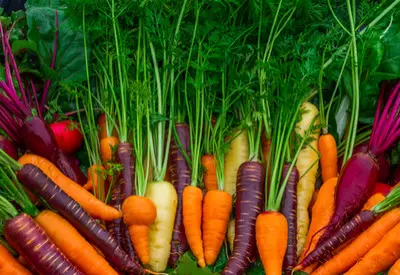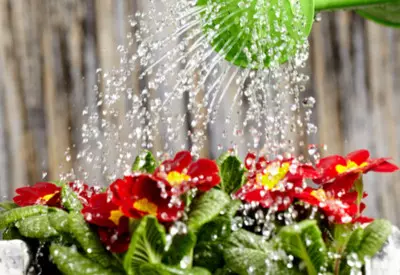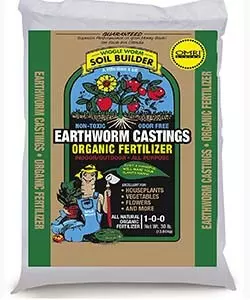Do organic liquid fertilizers really work? You bet your all-natural, high-yielding, gorgeous plants they do!

Ever since planting our first garden at the farm back in 2011, we have grown our crops using a 100 percent organic approach.
We use compost and cover crops regularly to keep soil re-charged and ready to grow. And when we need to give plants a little boost in season, we turn to organic liquid fertilizers. The results have been nothing short of spectacular.
Liquid fertilizers are wonderful for providing a quick shot of nutrients to vegetable plants, flowering annuals, and even perennials.
Plants take in nutrients from liquid fertilizers in two ways, through their roots, and through their leaves. This double-duty punch of power is one of the reasons liquid fertilizers work so well.
The best part of all, many liquid fertilizers can be made easily, and at minimal cost – or even for free! Here are four fantastic organic liquid fertilizers that we turn to with great results.
4 Organic Liquid Fertilizers That Work!
#1 Worm Casting Tea
If you follow our blog, you know how much we love worm castings for fertilizing. We use castings for everything from hanging baskets, to container plantings, flowerbeds and vegetable plants. We now place a teaspoons or two of worm castings in every planting hole we create, and the results have been spectacular.
The same can be said for making homemade liquid fertilizer by soaking the castings in water. The resulting solution is perfect for giving an instant boost of nutrients to plants when needed.
Earthworm castings contain a perfect mix of organic nutrition. Nitrogen, calcium, magnesium, phosphorus and potassium can all be found in worm castings, and those vital nutrients power plants to new heights.
To make worm casting tea, mix a 3/4 cup of castings with 1 to 2 gallons of water. Steep for 24 hours, strain and water plants with the liquid. We use this solution on young vegetable plants a few times early on to get them off to a good start. We also use it or compost tea (below) every few weeks on hanging baskets to keep them blooming all summer. Product Link : Worm Castings
#2 Compost Tea
Coming in at a very close #2 for us is compost tea. It is so simple to make, and yet so incredibly powerful and effective. All you need is a little fresh compost, water, and a 5 gallon bucket. Place a few shovels of fresh compost in the bottom of the bucket. Fill with water, and stir a few times each over the course of a few days. Then strain and use. Yes, it’s that simple!
Compost Tea can be applied every few weeks to the garden or flowers once transplants have become established. Product Link : Compost Tea
#3 Liquid Fish Emulsion

Fish emulsion is a liquid fertilizer made from fish remnants. Fish emulsion is high in Nitrogen, and contains Magnesium and Calcium as well. Much like compost and worm casting tea, it is highly potent and effective. It is all natural, and perfect for fertilizing everything from flowerbeds to vegetable gardens.
Purchased solutions can be diluted with water and then applied to plants. it is absorbed both through the roots and through foliage, and is an excellent choice for those who might not have access to compost or worm castings. Product Link : Fish Emulsion Concentrate
#4 Manure Tea
Manure tea is an incredibly rich and excellent liquid fertilizer for folks who raise or have access to manure from chickens, rabbits, cattle and horses. Manure tea is a simple but powerful fertilizer created by steeping fresh manure in water. It can then be applied by watering around the plant’s root zones.
To make, place a shovel of fresh manure in a 5 gallon bucket, and fill with water. Stir and let steep for 24 to 36 hours, stirring at least once every 12 hours. It can then be strained and used. Manure tea can be extremely potent and can burn the leaves of plants, so it is best to use only around the root zones of plants.
Here is to giving a little organic boost to your garden and flowerbeds this year! For more on fertilizing, see : 5 Natural DIY Fertilizers
Happy Organic Gardening! Jim and Mary. To receive our 3 Home, Garden, Recipe and Simple Life articles each week, sign up below for our free email list. You can also follow us on Facebook, Twitter, Pinterest, or Instagram. This article may contain affiliate links.


